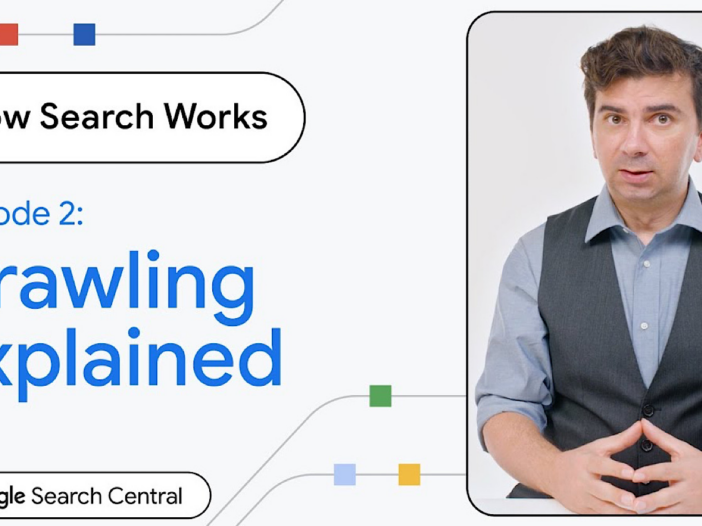31 October 2024
Google’s algorithms have always been ever-evolving and are notoriously shrouded in mystery. One of the few certainties is that such updates always bring about change for digital performance marketeers as we seek to achieve the very best search results for brands.
And while the latest updates were no exception to that, they also bring to the forefront how Brand’s role – encompassing PR as a crucial component to enhance reputation, visibility, authority and engagement – has been on an evolving journey for some time.
Over recent years, there has been a drive to integrate Brand into SEO strategies across the industry. It’s now at the point where it is starting to be seen as a crucial fourth pillar for SEO strategies, in my view. Put simply, an alignment of Brand and SEO strategies now enables brands to achieve better results.
Some brands which had perhaps previously put all their energy into the three traditionally core areas of SEO – technical performance, content and authority (link acquisition) – risk seeing performance growth stall without the adoption of an aligned digitally-focused Brand strategy. Channels underneath that Brand strategy – including PR, organic social media, video content and influencer marketing to name a few – now appear to often carry more weight when considering SEO because Google is increasingly expecting brands to demonstrate trust, authenticity and credibility to rank well.
Ultimately, the harder these aligned Brand and SEO-minded assets work for every brand – and by that I mean ensuring that they also reach the right target audiences with relevant, quality content which reflects brand values and messaging – then the far better success for Brand equity and awareness, and the greater the potential visibility improvements in Search Engine Results Pages (SERPs). This wasn’t deemed as vital a few years ago and adoption of an aligned approach isn’t as widespread as it could be, hence why it’s important to really double down on it now as things continue to move at pace.
Trust and authority
It’s so important for brands to be viewed as authoritative voices in their fields. Building brand trust and authority through consistent messaging and PR efforts also enhances SEO by improving backlink profiles and domain authority. This area of the industry has been on a journey for some time and I’m never going to profess that backlinks are the answer in isolation; it always has to be quality content via PR – think of landing that one in-depth piece of content which talks directly to a target audience. That’s going to achieve far more than an output of 50 other pieces across random titles. And this helps to build that credibility Google now favours alongside the technical SEO pillars that have been established over the years.
Social synergy
While it may be the case that social media does not influence a brand’s SEO rankings directly at this point, it does play a role in brand exposure and traffic generation. Efforts to promote quality content through social channels can enhance brand awareness and drive referral traffic. This channel will no doubt play a more dominant role in the future for SEO, so it’s always good to be ahead. Some people are calling TikTok the new Google, so while the exact format Google will take ongoing is unknown, it’s not farfetched to suggest that the search engine will adapt to have more of a social feed style, with more video led content ongoing.
Keeping it local
With the rise of local search, brands can also benefit from prioritising local aligned SEO and Brand strategies, ensuring that their presence is optimised for local searches, which often tracks back to PR efforts in terms of regional media coverage. Often community engagement can play its part here too. Ensuring locality sits as part of the wider strategy will help to drive longevity for SEO results.
A combined approach to make data-driven decisions
Our PR and SEO teams work hand in hand at IDHL, and we are continually monitoring data analytics and performance of the brands we work with. While we emphasise the essential part that Brand plays in SEO strategies, having the data points that indicate impact has made sure we’ve been able to finetune workstreams over the years; ensuring Brand sits among the myriad of technical elements of SEO which are still vital to the strategy.
The last few weeks, since the latest Google algorithm changes, have also been about liaising with and educating clients since the alterations came into play; demonstrating the benefits they’ve already seen by integrating Brand as a key pillar.
Data and digital have to be paired with Brand teams across the industry and we need to be more confident as a sector in quantifying what this looks like and how to demonstrate its worth; otherwise brands run the risk of losing momentum on those all important search metrics that they’ve built up over recent years.
Quality reporting
For some time, we’ve recognised at IDHL that Brand awareness and reputation insights can and should feed into SEO reports. Yet this doesn’t seem to be industry-wide at the moment.
By working in the way we do, we’ve been able to showcase how brand search volumes and referral traffic can demonstrate Brand improvement as well as SEO for a multitude of brands. It’s also enabling us to optimise and accelerate growth for our clients via a fully-integrated approach.
In summary, I believe that performance marketeers who look to unite Brand and SEO strategies, and integrate broader reporting metrics, can help businesses adapt to and see SERP improvements from the recent algorithm updates.
As professionals in this space, we need to ensure brands we work with have the right attitude and agility to keep abreast of the fast changing landscape that SEO presents; giving them the technical capability and Brand knowledge to empower decisions that drive results to grow their business. That way, search algorithm changes will be seen as a way to unlock future growth, rather than challenge historic success.
If you’d like to speak to us about how IDHL can build and execute a combined Brand and SEO strategy based on data, get in touch.
SiriusXM’s data clean room, latest AA/WARC report, and Linkedin hit with record fine: this week’s must reads
Nearly three-quarters of shoppers prefer Amazon for holiday shopping inspiration
CTV accounts for almost half of all video ad views in Europe
Google or Meta? The best way to spend your paid media budget during peak
‘Discovery happens everywhere, but decisions are made on Google’, says tech giant’s UK MD
Channel 4’s digital streaming investment pays off for 2024
Top 5 adtech tools this week: Blis, Nexx360, StackAdapt, Space & Time and DAC
AA/WARC: Total adspend increases 13.5% in H1 2024
Google ordered to pay over €26m in antitrust damages to Equativ
SiriusXM media launches data clean room for GroupM advertisers
Decoding Ads Policy: Google’s Head of Ads Safety Talks Clicks and Compliance [Podcast] – Search Engine Journal
Join this leadership discussion for proven techniques to build long-term relationships and keep your clients coming back.
Discover the latest trends, tips, and strategies in SEO and PPC marketing. Our curated articles offer in-depth analysis, practical advice, and actionable insights to elevate your digital marketing efforts.
In this guide, industry experts explore the challenges and opportunities presented by the onslaught of AI tools, and provide actionable tips for thriving amid these shifts.
Discover the latest trends, tips, and strategies in SEO and PPC marketing. Our curated articles offer in-depth analysis, practical advice, and actionable insights to elevate your digital marketing efforts.
Join three of Reddit’s top executives in this exclusive AMA (Ask Me Anything) to discover how you can tap into Reddit’s unique platform to drive brand growth.
Join this leadership discussion for proven techniques to build long-term relationships and keep your clients coming back.
Podcast: Download
Subscribe: Apple Podcast Google Podcasts Spotify
Get ready to unlock the secrets behind successful – and SAFE – advertising as we dive deep into the world of ads policy with a true industry expert.
Alejandro Borgia, Google’s Director of Product Management, Ads Safety, joined me on the SEJShow to decode ad policy, setting the record straight on common myths in the ads world, from captivating clicks to unwavering compliance.
From debunking misconceptions to chatting about what’s next for ads, this episode is a must-listen for marketers, advertisers, and PPC enthusiasts alike.
[00:00] – About Alejandro.
[01:46] – How Google approaches ad safety.
[07:27] – Benefits of the Transparency Center.
[09:23] – How will AI integration affect ad safety?
[14:25] – How Google will defend the risks of generative AI in advertising.
[19:21] – Misconception about ad safety.
[22:21] – Top threats to Google’s safety work.
[24:34] – The then and now of Google Ads.
[27:48] – What Alejandro is excited about.
For more content like this, subscribe to our YouTube channel: https://www.youtube.com/user/searchenginejournal
Connect With Alejandro Borgia:
Meet Alejandro Borgia, a standout authority in product management and marketing. At the helm of strategic initiatives at Google as the Director of Product Management, Alejandro is known for breaking new ground.
His proven track record extends to influential roles at cybersecurity giant Symantec and digital music pioneer Napster. Known for his thoughtful approach and continuous contributions, Alejandro has a well-earned reputation for fostering innovation, promoting growth, and encouraging transformation in the tech industry.
Connect with Alejandro on LinkedIn: https://www.linkedin.com/in/alejandroborgia/
Connect with Amanda Zantal-Wiener, Editor-in-Chief at Search Engine Journal:
Follow her on Twitter: https://twitter.com/Amanda_ZW
Connect with her on LinkedIn: https://www.linkedin.com/in/amandazantalwiener/
Amanda is a writer, editor, marketer, and “Golden Girls” superfan. Joining SEJ from HubSpot, her byline has appeared in Thrillist, …
Conquer your day with daily search marketing news.
Join Our Newsletter.
Get your daily dose of search know-how.
In a world ruled by algorithms, SEJ brings timely, relevant information for SEOs, marketers, and entrepreneurs to optimize and grow their businesses — and careers.
Copyright © 2024 Search Engine Journal. All rights reserved. Published by Alpha Brand Media.
The Importance Of First Party Data Activation [Podcast] – Search Engine Journal
Join this leadership discussion for proven techniques to build long-term relationships and keep your clients coming back.
Discover the latest trends, tips, and strategies in SEO and PPC marketing. Our curated articles offer in-depth analysis, practical advice, and actionable insights to elevate your digital marketing efforts.
In this guide, industry experts explore the challenges and opportunities presented by the onslaught of AI tools, and provide actionable tips for thriving amid these shifts.
Discover the latest trends, tips, and strategies in SEO and PPC marketing. Our curated articles offer in-depth analysis, practical advice, and actionable insights to elevate your digital marketing efforts.
Join three of Reddit’s top executives in this exclusive AMA (Ask Me Anything) to discover how you can tap into Reddit’s unique platform to drive brand growth.
Join this leadership discussion for proven techniques to build long-term relationships and keep your clients coming back.
Podcast: Download
Subscribe: Apple Podcast Google Podcasts Spotify
Cookies going away in Chrome?
They already have been eliminated from the most popular browser on the mobile market – Safari.
How does this affect marketing & sales? What about Shopify merchants?
Brent Ramos, Product Director at Adswerve, joined me to discuss incremental measurement in ecommerce and beyond.
We talked about the importance of first-party data and the possibility of losing a lot of the third-party data that we’re getting through cookies on the Chrome browser.
Third-party data will probably always exist in some format, to some kind of degree, and not all third-party data is bad. First-party data is certainly not bad. It’s required for many daily things that we as consumers experience that we enjoy. So those first-party cookies will persist and will persist more than the third card, third-party cookies. –Brent Ramos, 05:58
Those touchpoints make up a full, wholesome persona of what a real human being could look like. And so it’s not a matter of how you collect it, but it’s a matter of having you started? And what are you doing? See it with an eye to activation. –Brent Ramos, 07:20
From the consumers’ point of view, they will be getting a better experience. They should be able to have better conversations with their brands across all of the different touchpoints and channels in a way that’s responsible and appropriate. And it’s useful all at the same time. –Brent Ramos, 11:10
[00:00] – About Brent
[03:13] – What is first-party data, and how is it different from third-party data?
[05:38] – What Brent thinks about Google’s first-party data announcement.
[07:00] – How can businesses begin with first-party data?
[10:11] – How will it change consumer experience?
[12:23] – Why didn’t people pay as much attention when Safari made the change?
[16:24] – Where do you keep first-party data?
[18:26] – Challenges behind owning data that businesses should be aware of.
[22:01] – Samples of first-party campaigns.
Resources mentioned:
Adswerve – https://adswerve.com/search
So the faster you can get first-party data and lifetime value modeling embedded into your bids, the better you will be. And you won’t have to worry about competition nearly as much when you know you can do that. –Brent Ramos, 26:52
Once you add lifetime value into the equation, no matter what the attribution channel, you’re just talking in a different language. Which is more so marketing than direct response that we’re used to talking with an SEO. –Loren Baker, 24:07
It’s only going to force firms and agencies to become better storytellers. That’s really what the core component is. –Brent Ramos, 11:10
For more content like this, subscribe to our YouTube channel: https://www.youtube.com/user/searchenginejournal
Connect with Brent Ramos:
Brent is a seasoned digital entrepreneur and ad tech expert with over 15 years of experience. He combines his expertise in front-line tactics and high-level strategy to help clients use the Google Marketing Platforms to achieve their goals.
He has been focused on delivering the highest level of predictable success possible based on new ideas that lead to high-level strategic marketing success as Product Director at Adswerve.
Connect with Brent on LinkedIn: https://www.linkedin.com/in/brentramos/
Connect with Loren Baker, Founder of Search Engine Journal:
Follow him on Twitter: https://www.twitter.com/lorenbaker
Connect with him on LinkedIn: https://www.linkedin.com/in/lorenbaker
Loren Baker is the Founder of SEJ, an Advisor at Alpha Brand Media and runs Foundation Digital, a digital marketing …
Conquer your day with daily search marketing news.
Join Our Newsletter.
Get your daily dose of search know-how.
In a world ruled by algorithms, SEJ brings timely, relevant information for SEOs, marketers, and entrepreneurs to optimize and grow their businesses — and careers.
Copyright © 2024 Search Engine Journal. All rights reserved. Published by Alpha Brand Media.
Successful Podcasters Share What Makes A Great Podcast Intro – Search Engine Journal
Join this leadership discussion for proven techniques to build long-term relationships and keep your clients coming back.
Discover the latest trends, tips, and strategies in SEO and PPC marketing. Our curated articles offer in-depth analysis, practical advice, and actionable insights to elevate your digital marketing efforts.
In this guide, industry experts explore the challenges and opportunities presented by the onslaught of AI tools, and provide actionable tips for thriving amid these shifts.
Discover the latest trends, tips, and strategies in SEO and PPC marketing. Our curated articles offer in-depth analysis, practical advice, and actionable insights to elevate your digital marketing efforts.
Join three of Reddit’s top executives in this exclusive AMA (Ask Me Anything) to discover how you can tap into Reddit’s unique platform to drive brand growth.
Join this leadership discussion for proven techniques to build long-term relationships and keep your clients coming back.
Your podcast intro is foundational to its success. Here, podcasters share seven tips to build and engage your listening audience.
Podcast intros are an important quality of a successful podcast.
The right intro sets the podcast on a path to success.
These seven tips will help your podcast build an audience and retain it:
Let’s dig into each one and see how you can put it work for your podcast.
Erin Sparks of Edge of the Web Radio podcast says that there is a subtle but important value in the podcast intro when it comes to what he calls, “click browsing.”
Erin suggests that the intro functions like a hook – to grab the listener’s attention and immediately intrigue them.
He shares this insight:
“The audio ‘hook’ is important to podcast click browsing. Walking through a podcast app, people will click and listen to 7-10 seconds to hear if they ‘feel’ the show.
Much different than any other medium.”
Chris Brogan of Making the Brand podcast agrees that a podcast intro should be short.
He shares these insights on the qualities of a useful podcast intro:
“I’m a huge fan of brief. Once you hear it more than twice, it’s boring to everyone.
An intro should set the mental stage for what’s coming up.
Choose music and words that emulate the show.”
Jorge Hermida, Program Director at WMR.FM and Cannabis Radio Podcasts, observes that it’s important to give listeners a reason to stick around for the podcast but to do it in the shortest amount of time possible.
He says there is absolutely no time to waste within your podcast intro so it’s super important to literally make every second count.
He shares:
“Podcast listeners, just like anybody else, have a short attention span.
You have to give listeners a reason to listen to your content within the first 30 seconds.
Whether you create a cold opener or you run down what you’re going to be talking about on the program, you need to satisfy that listener immediately.
Create the intro as if every listener has a short attention span because in my professional experience, they will either stay and listen to your show, or they’ll drop off and find another show to listen to.”
Azeem Ahmad of the Azeem Digital SEO podcast shares that a good podcast intro will help maintain audience retention, as well as encourage engagement and loyalty.
This is an element of conversion theory, where even seemingly trivial elements can encourage or discourage the action we are looking for.
A classic example is a PPC arbitrage marketer who maximizes the number of sales for every click.
Affiliate PPC marketers succeed or go out of business fast depending on how well they convert every visitor.
This person discovered that detecting the mobile device and adding an “iPhone friendly” or “Android friendly” badge increased their conversion rates by a measurable rate.
The follow-up insight Azeem suggests is similar.
He said that a podcast intro has the same effect of encouraging a user to click and stay for the podcast or to leave.
And for that reason, it’s important to view the intro as a configurable asset that can be used to improve audience retention.
Azeem shares how a podcast intro is important for retention rates and engagement:
“People will get bored with repetition, and regardless of your podcast format – the idea is to engage the listener.
If you lose them within the first 30 seconds, you will very likely see a drop in retention rate and engaged listeners.”
Azeem next shares that a way to improve retention and engagement is to experiment with new intros and outros.
He shares this tip:
“As a host you should change this up sometimes.
Customizing the intro every time is basically an option to test for what works the best.
For example, you could test asking people to subscribe in the intro vs. the outro for a few episodes and see which drives more growth.”
Sparks offers useful information about what should be communicated in a podcast introduction.
He shares how the introduction should communicate the “What’s in it for me?” proposition to the listener.
Figuring out the tried-and-true principle of answering the question of “What’s in it for me?” is a great way to think about how to create a podcast intro that is useful for the listener.
So, it makes sense to apply that approach to podcast intros so that a listener is reminded of why they are there, which could be to become better at what they do, to catch up on industry news, to be entertained, etc.
Here is what Sparks shares:
“A good intro provides:
Jim Hedger, the co-host of the popular Webcology SEO podcast, suggests that the podcast intro helps to build a sense of familiarity and ownership of a space.
I’ve noticed that people tend to feel a sense of ownership in a website they enjoy, perhaps because the site might be a part of their self-identity as a baker, sportsperson, or whatever the topic is.
Ever walk into a favorite restaurant and immediately receive a feeling of comfort or anticipation?
It’s a sense of ownership of an experience, that this experience is yours and it’s yours yet again.
Hedger says that a podcast intro can have a similar effect, to bring a sense of comfort and anticipation that one feels in physical spaces that one feels loyal and connected to.
He observes:
“I once read that people aren’t loyal to restaurants as much as they are loyal to spaces they feel comfortable being in.
The same can be said for podcasts.
Like radio, podcasts are a theater of the mind. Your intro is the breath that first forms the space you, your guests, and the audience will create together.
Podcasts are incredibly intimate. I think you need to feel love for your audience and deeply respect the topic and your introduction is your first chance to establish that.
A host’s job is to help the audience develop a zone in which they and the host are virtually in the same place.”
Something to keep in mind is that any music used should be licensed.
There is an idea that it’s okay to use just a little bit of someone else’s music, but that might not be the case.
And if that’s the direction you are moving in, then it may be prudent to check with an attorney first.
The podcasting professionals consulted for this article all agree that it’s important to purchase a license for the right to any music used within a podcast.
Everyone agrees that it’s best to license royalty-free podcast intro music because this safeguards against copyright infringement claims.
Hermida shares:
“Our music is licensed, and most other podcasts most likely use some kind of licensed music from other licensed music providers for some original music that’s not prone to any copyright issues.
It doesn’t really matter where the music comes from, except that I would always recommend to make sure you use music that you are allowed to use and that license to use the music is documented and can be proven.”
Sparks also recommends paying for a license to use music:
“We have a number of music licenses that we have used over the years.
We highly recommend reviewing different sound repositories and utilizing them to create that sonic brand.
Places to license music are Envato Elements, Epidemic Sound, and the like.
We also have a continual license with our deep voice announcer, our voice over talent.
That should also be something to consider when you’re developing a long-term show.”
Brogan recommends:
“Epidemic Sound works fine. Buy a license. “
Always read the license when choosing a digital music asset in order to be aware of what you can and can’t do with the music and for how long you are entitled to use it.
At this point, it should be clear that a seemingly trivial thing like a podcast intro is actually part of the foundation of a successful podcast.
Clearly, the content of the podcast is the most important quality of a podcast.
Yet, as important as the content is, it’s the podcast intro that sets the stage and makes listeners feel they have arrived at their happy place, while also communicating what is in it for the listener, which encourages them to stick around for the content.
More Resources:
Featured Image: Alex from the Rock/Shutterstock
I have 25 years hands-on experience in SEO, evolving along with the search engines by keeping up with the latest …
Conquer your day with daily search marketing news.
Join Our Newsletter.
Get your daily dose of search know-how.
In a world ruled by algorithms, SEJ brings timely, relevant information for SEOs, marketers, and entrepreneurs to optimize and grow their businesses — and careers.
Copyright © 2024 Search Engine Journal. All rights reserved. Published by Alpha Brand Media.
Halloween 2024 Google Search Ranking Update 👻 – Search Engine Roundtable

I am seeing a significant spike in chatter from within the SEO community about a possible Google Search ranking update and/or heavy volatility happening starting October 31st. Let’s call it the Halloween 2024 Google Search ranking update – because why not…
The chatter began yesterday late morning and has continued throughout the day. There are also some of the tracking tools picking this up, in fact, SimilarWeb spotted the volatility in a big way yesterday, showing its most heated day in over a month.
The chatter seemed to have cooled as of this morning and so did SimilarWeb. Most of the other tools picked up a small spike. Although, it seems more are now talking about it after 7am ET today.
I am suspecting there was some shift in the late morning and then it shifted back? It is hard to say for sure? What did you all see?
As a reminder, Google did tell us that an search update is coming soon. The last time we reported on an update was on October 23, 24 and 26 and 27th and before that, October 19th and 20th volatility and then on October 15th, October 10th and then before that on October 2nd which lasted a couple of days. The Google August 2024 core update started on August 15th and officially completed on September 3rd. But it was still super volatile the day after it completed and also weeks after it completed and it has not cooled.
We saw big signals on and around September 6th, September 10th or so and maybe around September 14th. We also saw movement around September 18th, last weekend and Septmeber 25th and September 28th or so.
SEO Chatter
Let’s start with the chatter in the past 24-hours from both WebmasterWorld and on this site:
It must be here already my traffic was down yesterday and is down hugely this morning. Let’s see if this is just a short term shakeup because if not it’s going to be ugly…
Oh, and as usual…I had one week where I had a normal level of new inquiries and then back to zero this week, not one new customer inquiry just spam.
After 13 hours of my Googleday I am seeing a total collapse across global, national and regional sites. Global sites are at 20% and regional at 30% … What have they done now?
There’s also a lot of volatility here. There were 4 days of huge drops, yesterday was a little better. Today there’s a lot of traffic, but curiously, it doesn’t match the AdSense data…
Usually when this happens to my sites, they announce the beginning of an update right after…
Seeing a 50% drop in traffic today.
18 hours and at 40%!
At this time of year I expect our travel-planning site’s traffic to drop off (week over week), because that’s been the seasonal pattern for 20+ years. And to be sure, our overall traffic is showing its usual post-summer decline, but our Google traffic has actually been up for the last several days. Caveat: I don’t expect Google’s burst of mild generosity to hold. (It never does.)
seeing about – 35 % today here in Germany, yesterday was already not the best, but today the traffic is coming in very slow
Google is starting to shuffle again. haha. I am sure they will punish us some more because of this GPT launch.
It’s a Thursday. Every damn Thursday or Friday, they do the shuffle. I don’t care anymore. I hope GPT sends me some traffic. I am broke. lol
OK, so early observation. I have as much traffic to my site today (7AM), as I would usually get till 12PM. It is a Friday and these tend to be slow. I don’t see any ranking change on Google. is it because of GPT? I have to delve deeper.
in Romania there are big problems on the organic traffic side of Google. Big Drop everywhere.. about -40-45%. We manage over 60 websites and not one has remained intact.
A sharp increase in Dsicover traffic today, back to where it was two weeks ago, just before the massive collapse. Does anyone else actually understand what Google is doing all this time? I just don’t see the point of all the changes and it looks more and more like Google has lost control of its algorithm.
Google Tracking Tools
SimilarWebm showed a massive spike yesterday, some of the other tools are showing a bit of a lift today/yesterday but it may have cooled a bit today. Maybe Google was testing something spooky yesterday morning/afternoon? Super hard to say…
SimilarWeb:
Accuranker:
Advanced Web Rankings:
Mozcast:
Wincher:
Cognitive SEO:
Semrush: Mangools:
Mangools:
Algoroo:
Sistrix:
SERPstat:
Data For SEO:
SERPmetrics (not updated in a couple of week or so):
So what are you all seeing?
Forum discussion at WebmasterWorld.
The content at the Search Engine Roundtable are the sole opinion of the authors and in no way reflect views of RustyBrick ®, Inc
Copyright © 1994-2024 RustyBrick ®, Inc. Web Development All Rights Reserved.
This work by Search Engine Roundtable is licensed under a Creative Commons Attribution 3.0 United States License. Creative Commons License and YouTube videos under YouTube’s ToS.
Google Releases New ‘How Search Works’ Episode On Crawling – Search Engine Journal
Join this leadership discussion for proven techniques to build long-term relationships and keep your clients coming back.
Discover the latest trends, tips, and strategies in SEO and PPC marketing. Our curated articles offer in-depth analysis, practical advice, and actionable insights to elevate your digital marketing efforts.
In this guide, industry experts explore the challenges and opportunities presented by the onslaught of AI tools, and provide actionable tips for thriving amid these shifts.
Discover the latest trends, tips, and strategies in SEO and PPC marketing. Our curated articles offer in-depth analysis, practical advice, and actionable insights to elevate your digital marketing efforts.
Join three of Reddit’s top executives in this exclusive AMA (Ask Me Anything) to discover how you can tap into Reddit’s unique platform to drive brand growth.
Join this leadership discussion for proven techniques to build long-term relationships and keep your clients coming back.
Google explains how its search engine crawls the web in latest “How Search Works” video.
Google has published a fresh installment of its educational video series “How Search Works,” explaining how its search engine discovers and accesses web pages through crawling.
In the seven-minute episode hosted by Google Analyst Gary Illyes, the company provides an in-depth look at the technical aspects of how Googlebot—the software Google uses to crawl the web—functions.
Illyes outlines the steps Googlebot takes to find new and updated content across the internet’s trillions of webpages and make them searchable on Google.
Illyes explains:
“Most new URLs Google discovers are from other known pages that Google previously crawled.
You can think about a news site with different category pages that then link out to individual news articles.
Google can discover most published articles by revisiting the Category page every now and then and extracting the URLs that lead to the articles.”
Googlebot starts by following links from known webpages to uncover new URLs, a process called URL discovery.
It avoids overloading sites by crawling each one at a unique, customized speed based on server response times and content quality.
Googlebot renders pages using a current version of the Chrome browser to execute any JavaScript and correctly display dynamic content loaded by scripts. It also only crawls publicly available pages, not those behind logins.
Related: Google Answers A Crawl Budget Issue Question
Illyes highlighted the usefulness of sitemaps—XML files that list a site’s URLs—to help Google find and crawl new content.
He advised developers to have their content management systems automatically generate sitemaps.
Optimizing technical SEO factors like site architecture, speed, and crawl directives can also improve crawlability.
Here are some additional tactics for making your site more crawlable:
The latest video comes after Google launched the educational “How Search Works” series last week to shed light on the search and indexing processes.
The newly released episode on crawling provides insight into one of the search engine’s most fundamental operations.
In the coming months, Google will produce additional episodes exploring topics like indexing, quality evaluation, and search refinements.
The series is available on the Google Search Central YouTube channel.
Google’s crawling process, as outlined in their recent “How Search Works” series episode, involves the following key steps:
Marketers can adopt the following strategies to enhance their content’s discoverability and crawlability for Googlebot:
Matt G. Southern, Senior News Writer, has been with Search Engine Journal since 2013. With a bachelor’s degree in communications, …
Conquer your day with daily search marketing news.
Join Our Newsletter.
Get your daily dose of search know-how.
In a world ruled by algorithms, SEJ brings timely, relevant information for SEOs, marketers, and entrepreneurs to optimize and grow their businesses — and careers.
Copyright © 2024 Search Engine Journal. All rights reserved. Published by Alpha Brand Media.





